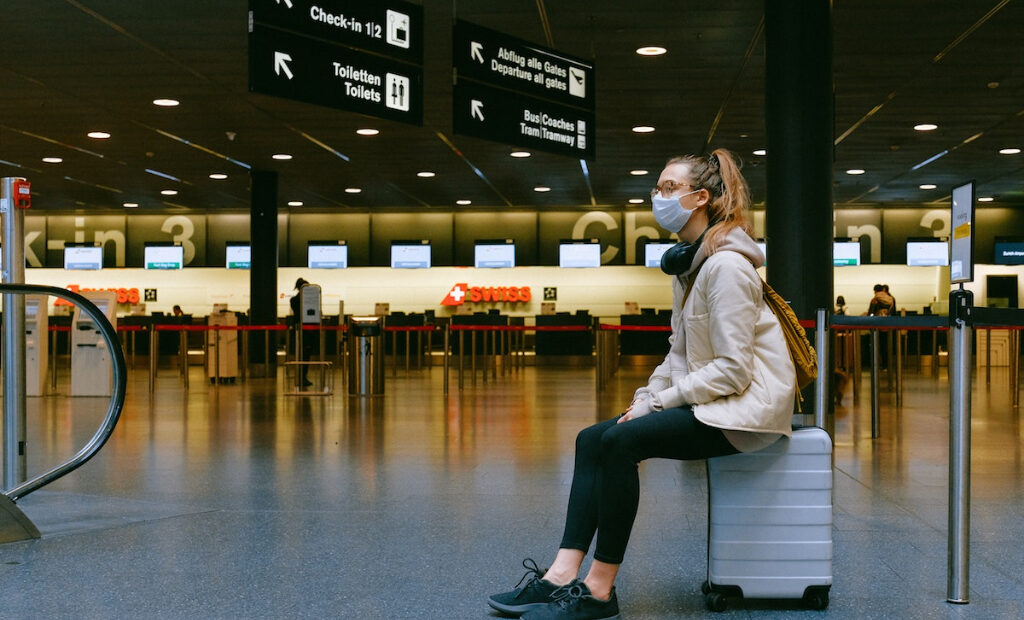What to consider when travelling during the Covid-19 pandemic

Despite countries around the world continuing to impose lockdowns to curb the spread of coronavirus, a surprising number of people are continuing to hop on a plane and travel abroad. For example, almost 200,000 seats were booked for flights from Dubai to Heathrow in the first week of January alone, making it the world’s busiest international air route. This goes to show that, even in the midst of a global pandemic, there is still enough of a demand for air travel to show that the world isn’t quite at a standstill. However, things are inevitably different at the moment – and for those who are planning to fly somewhere – there are many new considerations to contend with.
Check whether you can travel
Before planning a trip, check whether it’s even legal to fly to the chosen destination by law. While the UK government is authorising essential travel to certain countries, people must have a legally-permitted reason to do so. Although it isn’t clear exactly what constitutes essential travel, one example would be for a family emergency, such as caring for a relative when nobody else can.
However, even for those who are legally allowed to visit another country, they may not be able to get there, as many nations – including China, Spain and the Netherlands – have banned flights from the UK due to its new mutant strain of coronavirus. Likewise, the UK government has banned flights from the whole of South America, as well as Portugal, because of concerns about new coronavirus strains in those territories. This could see travellers stuck abroad even if they manage to arrive straightforwardly. This all goes to demonstrate why it’s critical to assess the situation at the intended destination before committing to anything.
Of course, as with travelling in normal circumstances, it’s necessary to ensure that passports are up to date – and if necessary – obtain a visa to guarantee entry into the country in question. Thankfully, even without a visa, it’s still possible to enjoy short visits to EU nations, as CS Global Partners explains, visa-free travel is “the ability to visit a country without having to complete lengthy visa procedures.”
Find out the quarantine requirements
As well as imposing bans on entry for certain nationalities, most countries have some form of quarantine requirements upon arrival. While some allow people to go about their trip as normal, provided they return a negative COVID-19 test – or impose a short quarantine for arrivals – others have much longer isolation periods, regardless of whether one has the coronavirus or not. For example, everybody arriving in the US will have to quarantine for 10 days after touching down, while those visiting Australia must do so for 14 days unless exempt. Consequently, travellers should find out the quarantine rules of the country they wish to visit and weigh up whether the trip is still worth it in light of them. It’s also important to note that some governments may ask travellers to quarantine in state-run accommodation facilities, potentially at their own expense.
Travellers also need to consider the UK’s quarantine requirements for when they arrive back here after travelling. However, these rules differ slightly depending on which UK country one lives in, with each union member having at least a 10-day self isolation period. Everybody arriving into the UK from abroad must present proof of a negative Covid-19 test too, another cost to take into account when planning a journey.
Choose your insurance carefully
Travel insurance is essential for any trip overseas, covering things like healthcare, theft and cancelled flights. However, while travellers certainly can still obtain insurance during these unprecedented times, it’s more essential than ever to read the small print. Many providers aren’t providing cover to countries which have been vetoed for travel by the UK government and there’s no point in buying a travel insurance policy that can’t actually be used. Fortunately, there are many companies out there offering coverage for these nations, albeit for higher prices. By doing due diligence, it’s possible to get the right travel insurance policy.
Another useful travel insurance tip to bear in mind during the pandemic is to buy a policy with coverage which is specifically related to coronavirus. Many insurance companies have general exclusions against such claims, while some may only cover if the person concerned contracts COVID-19 and are forced to cancel their trip, but not if somebody in a household does and everyone else also has to self-isolate. Again, reading the small-print is key. Aside from coronavirus, it’s also more important than ever to have airline failure insurance, considering the number of airline companies struggling at the moment.
The editorial unit























Facebook
Twitter
Instagram
YouTube
RSS